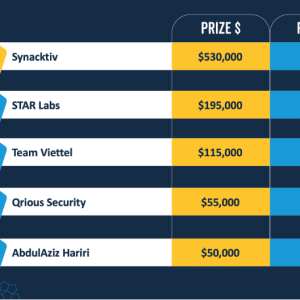Shadow IT teams, also known as rogue IT teams, have grown in popularity in recent years due to the rise of cloud-based apps and remote work. However, this has led to operational tension and security risks within many businesses.
The NullMixer package is including new polymorphic loaders by third-party MaaS and PPI service providers in the underground markets, and also pieces of controversial, potentially North-Korean-linked PseudoManuscript code.
You can simply block, by default, all access to all uncategorized sites. But wielding such a blunt policy instrument is likely to introduce a range of problems for users trying to access legitimate sites, and negatively affect business velocity.
BlackGuard, which was first spotted in March 2022, has experienced an upgrade with several new capabilities. It added a crypto wallet hijacker module that has hardcoded addresses and support for multiple cryptocurrencies. The stealer can now propagate via USB and other removable devices to infect new hosts. Also, it can now steal data and drain […]
On the third day, contestants were awarded $185,000 after demonstrating 5 zero-day exploits targeting the Ubuntu Desktop, Windows 11, and the VMware Workstation software.
Parts of Twitter’s source code were recently leaked online via GitHub, the New York Times reports, but were taken down after the social media platform filed a DMCA request.
Instead of sending fake invoices or money transfer requests, attackers attempt to ‘purchase’ high-value goods such as construction materials, agricultural supplies, IT hardware, and solar energy products.
In the new campaign found by Intezer, Bitter sends emails pretending to be from the Embassy of Kyrgyzstan in Beijing to various Chinese nuclear energy companies and academics related to that field.
On March 16, 2022, about a month after the FBI took down a popular online forum for buying and selling stolen data known as RaidForums, another criminal marketplace quickly sprung up to take its place.
American university researchers have developed a novel attack called “Near-Ultrasound Inaudible Trojan” (NUIT) that can launch silent attacks against devices powered by voice assistants, like smartphones, smart speakers, and other IoTs.









